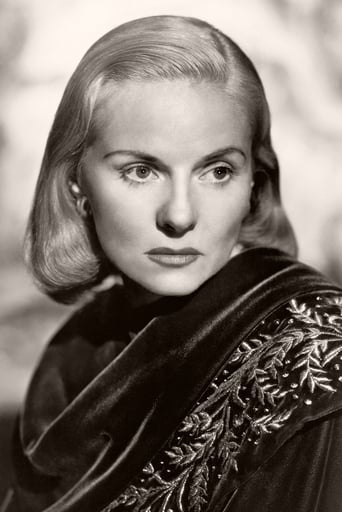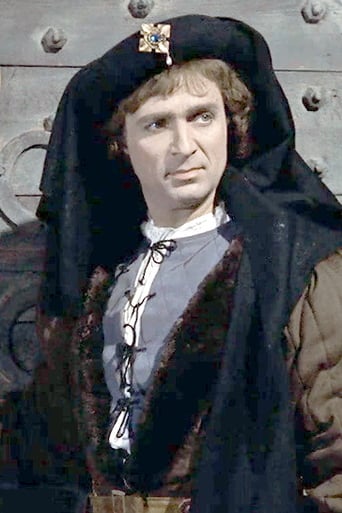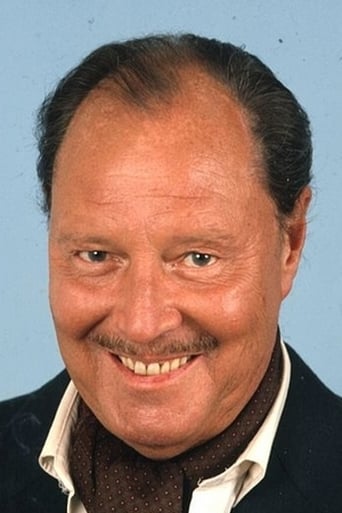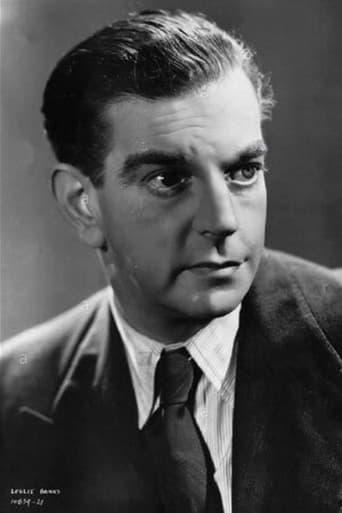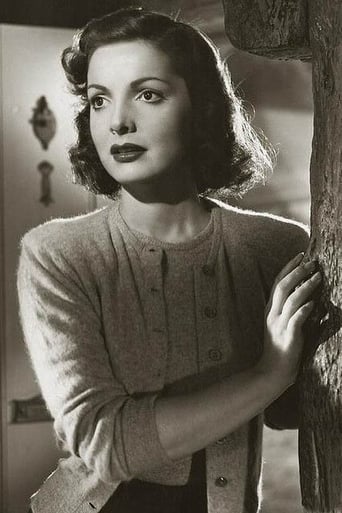Sexylocher
Masterful Movie
Lancoor
A very feeble attempt at affirmatie action
Allison Davies
The film never slows down or bores, plunging from one harrowing sequence to the next.
Enoch Sneed
As you will know from reading other reviews this film is based on a true crime from Scotland in the 1850's.The question is: what does David Lean make of this material? At first he seems to be making a study of the repression of women in Victorian society. Madeleine Smith's life at home is dominated by a stern father who expects his daughters to do their duty by him, even changing his shoes! The bars on Madeleine's bedroom windows are a not too subtle symbol of her caged existence. A breath of freedom and excitement seems to come in the form of a lover, but even he just wants to use Madeleine to advance his social position and can be brutal when his ambition is frustrated - he is certainly not a romantic hero. It is interesting that on the two occasions when we can clearly infer he and Madeleine make love (the first time against the background of a Scots ceilidh, which makes for some very erotic imagery), it is done from a position of dominance on his part, he is literally standing over her.The man Madeleine is expected to marry seems honourable and decent, but he too will prove incapable of loving her as a real person - she must be flawless. When the lover turns to blackmail it seems Madeleine has no way out but to turn to poison.Now the film becomes a courtroom drama. Do we want to see Madeleine acquitted or not? Did she poison Langelier? The end of the film answers this question with an enigmatic smile into the camera from Ann Todd (the 'fourth wall' is broken several times in the film).What we are left with, then, is a film which appears to start from a feminist viewpoint, then becomes a romance, then a crime procedural. From being deeply involved in Madeleine's story, we become distant from her when she is charged with murder. Ultimately we don't really care about her fate, and an unsolved crime is always strangely unsatisfying.There are some great moments of cinematography (particularly deep-focus photography) and image-making here, but the film is not quite a satisfying whole, with too many loose ends (her family's reaction, for example; I'm sure 'Papa' was outraged but he still provided the best lawyer he could find) to make a rounded drama.
LouE15
David Lean is one of those directors who I don't quite know how to 'take'. Watching the 'lesser' films of a great director (in a great box set I got this year) is no doubt an excellent way to decide what you really think about them. The awe (or boredom) inspired by the best-known and – allegedly – the best-loved works is absent; you watch with completely open, unaffected eyes. Thus "Madeleine": I knew nothing about the (true) story on which it is based, and was gripped by a thoroughly sinister and tense story from first to last. I won't cover the story - it's been done so well by other reviewers.The best parts of a 'minor' film like this stand out all the more strongly for there being no expectation that you should fall on your knees over it. Where a minor director would direct a film of a true story in stocky, reliable fashion, a great director adds flourishes – not merely ornamental – that truly raise the film to a greater status. The tension is ramped up more effectively; the bitter consequences of the rash acts more bitter; the harm, the joy, the cause-and-effect more meaningful. Lean's control of sound, vision, story, pace here – these mark him out as great and bring to mind – at their best – the way that Kurosawa tells a story. I'm not comparing them – they're so different – except in the ways that, as the saying goes, it really is all in the detail.Ann Todd plays the temptress Madeleine – and my goodness, what a sharp-faced little thing! As much of greed and spoilt willfulness in her wayward course as of real, true love. That her love cools so quickly when she realises (really, didn't she before?) finally that her lover will only take her WITH her money, means that there's really not that much sympathy with her plight. One look at her lover (and this really should be to the credit of the actor) is enough to tell you that he is vain, dandyish, idle, assuming, selfish and too proud for his own good. One look at her is enough to tell you that she usually gets what she wants – despite being – at least superficially – afraid of her father.The scene where Madeleine dances with her lover in a garden, intercut with scenes of the wild ceilidh going on down the hill, whose music provides her ambiance, is absolutely extraordinary, and reminds me of the masterful use of sound and music displayed in Kurosawa's "The Bad Sleep Well" (particularly, the funeral scene). Lean beat the censors in telling his story the way he did, and he shows great control in his racking up of the tension throughout the story.It's also a real pleasure to see some great Scottish actors that appeared in other films of this period which I adore: Jean Cadell, who appears in "Pygmalion" – which Lean edited – and "I Know Where I'm Going!", and John Laurie (also in "I Know Where I'm Going!" and in "Major Barbara").The transformation of L'Angelier from ardent, put-upon lover to oppressive, near-blackmailer is nicely done; as is the ambiguity surrounding whether Madeleine did, or did not, poison her lover. You just don't really ever quite believe her absolutely: you know there is ambiguity in everything about her, so that you don't trust her reactions and impressions. The court scenes are well played, and there's a thick tightness to the whole that feels like a short, rich dish, full-flavoured and satisfying. And that's not an impression I ever carried away from Lean's 'great' works. It won't make me rethink those works; it will make me seek out with greater interest than before, more of those works of the 1940s and 1950s which I think might be getting lost in the mists of time as cinema and its troublesome offspring, TV, grow from their infancy of those years, to their virulent, American-flavoured adolescence.
Steffi_P
Madeleine is one of a number of costume dramas produced around the late 1940s to focus upon psychological conflicts from a female perspective. Other notable examples are Vincente Minelli's Madame Bovary and William Wyler's The Heiress, both released in 1949. However, whereas those two pictures were based upon great literary works from the 19th century, Madeleine is a dramatisation (I would imagine a fairly liberal one given its melodramatic style) of actual events.Director David Lean was always one to immerse the audience in the psychological states of his characters, often through use of attention grabbing shots and expressive use of sound. There are some fairly routine examples of this in the first half of the film – eerie shadows of Emile twirling his cane, the blaring bagpipe music of a village dance at Emile and Madeleine's secret meeting, and so on.Another of Lean's characteristics was that, in order to tell a full story, the narrative would switch between the multiple points-of-view. This can be done fairly easily with a director who treats the audience as a passive, externalised viewer, but with Lean's constant involvement of the audience it could occasionally give his films a disjointed, unbalanced feel. This is somewhat the case with Madeleine, which begins as a psychological drama in which a young woman from a strict household must choose between her heart's desire and loyalty to her family. About halfway through however the story becomes a murder mystery and eventually a courtroom drama, and the narrative fragments as we see the points-of-view of various witnesses to supposed crimes. All the psychological set-up of the first forty-five minutes becomes forgotten.In spite of the fragmentary nature of the whole, there are some strong scenes and the occasional touch of class here and there. The pivotal scene in which Madeleine's father discovers his daughters affair, while at the same time Madeleine learns of Emile's death shows Lean's dramatic staging at its best. Intelligent use of space and positioning of actors in this scene best shows off the varying reactions. The final scenes in court are a carefully constructed blend of points-of-view and reaction shots, and Lean's background as a renowned editor is in evidence.A great cast was often a hallmark of a David Lean picture, but Madeleine suffers from a lack of classy actors. Having said that Ann Todd, whom I don't normally rate that highly, is not too bad here, emoting well in close-ups. Apart from that the only standouts are Andre Morell in a powerful performance as the defence counsel towards the end of the film, and an unfortunately brief appearance from Scottish character actor John Laurie as a fanatical mob leader.Madeleine has its moments, but all in all is a bit of a mediocrity. Lean was at his best when he could go all out on the emotional drama, but this foray into the courtroom is simply not enough of one thing or the other to be a really strong picture.
Tobias_R
David Lean's film Madeleine tells the true story of Madeleine Smith, a young woman from an upper-class Scottish family, who was tried for murdering her lover in 1857. The case, which was a media sensation in its day, ended with Ms. Smith being released after the jury reached the verdict of "not proved", which, in Scottish law, meant there wasn't enough evidence to convict her but sufficient evidence to entertain doubts about her innocence. The movie maintains the same ambiguity about her guilt or innocence of the crime, indeed ending with a voice over narrator asking the title character as to whether she was guilty or innocent. She just looks at the camera and gives a vague half smile that could mean either of the two.The strengths of the film are considerable. The lighting and overall cinematography give the film both a wonderful Victorian-era feel and a film-noir aspect as well. Indeed, the film has much in common with film-noir aside from the lighting. The story, like many noir films, has a dubious heroine who leads a fundamentally disadvantaged man, in this case, a lover from the wrong side of the tracks economically and socially, to his destruction. Indeed, given the situation presented in the film, the lover couldn't have realistically expected Madeleine's domineering and strict father to have ever accepted him given his poor social and economic prospects. Adding into the mix was Madeleine's own ambivalent handling of their relationship, promising one moment to tell her father about them, then pleading it was too difficult to do so. As history indeed bore out, it was a recipe for personal disaster.My main criticism of the film is that virtually nothing is told of how Madeleine managed to meet her lover in the first place. Some accounts I've read indicated that they first met in a Glasgow park. I think Lean should have shown that meeting to show how Madeleine had a mind of her own and how willing she was to defy her conventional and strict Victorian father. That would have added to the ambiguity of Madeleine's character, seemingly compliant to the demands of her family in terms of love and marriage and yet defiant of them as well.Still, the performances, especially Ann Todd as the title character, are top notch and this is a film well worth seeing. As I've said, this is the closest David Lean came to film-noir that I've seen.

